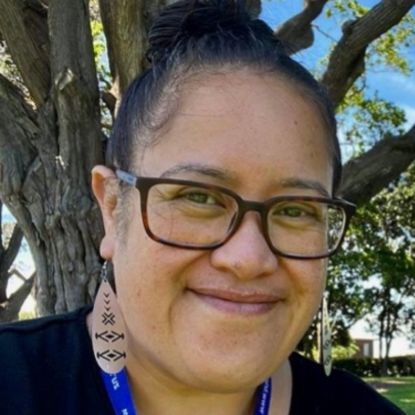Abstract:
I te Tīmatanga/In the Beginning: An Intertextual Reading of Hine Tītama and Eve
In Māori theological traditions, there are a series of pūrākau (ancient stories) about humanity. Here we engage specifically with the story of the first human being – a woman named Hine-tītama. Her story originates in the creation narrative of her mother Hine-ahu-one and her father Tāne. Upon learning that her partner (and the father of her child) was in fact her own father, Hine-tītama experienced such shame that she fled to Rarohenga (the nether-world) and took on the identity of Hine-nui-te-Pō. Later in her narrative, Hine-nui-te-Pō encountered the trickster, Māui-pōtiki, whom she crushed to death after he attempted to achieve immortality at her expense. In killing Māui, Hine-nui-te-Pō introduced mortality for all humanity forever.
This paper is an intertextual reading of Hine-tītama/ Hine-nui-te-Pō and the biblical character, Eve (Gen 2-3), focusing in particular on their respective histories of reception. While there are not exact correspondences between these two women, we will argue that there are a number of intertextual resonances between their stories. Each woman, for example, is understood as the first human being and is characterised as the mother of the human race. And yet, each woman also makes a fateful decision that will usher new kinds of knowledge into the world and ensure that death is a reality for mortal beings on earth. What is more striking, however, is the way in which these women have been similarly vilified by generations of interpreters for their choices and actions. Both Hine-tītama and Eve have come to be reviled through an association with sex, danger, and death. They are the quintessential image of the femme fatale and their characterisation in these terms is often transferred to become a characterisation of all women.
Having read the stories of Hine-tītama and Eve in light of each other, we will conclude our paper by resisting the patriarchal/colonial depictions of these women and offering an alternative interpretation, which reframes their choices and actions as considered, courageous, and ultimately beneficial for humanity. In reframing these narratives in this way, we seek to reclaim these women as figures who model strength, bravery, resilience, intelligence, and compassion for contemporary women (and indeed people of all genders) in Aotearoa and Oceania.
Profile:
He uri nō te hapu o Ngai Tūteāuru, nō te iwi o Ngā Puhi. Ko Puhanga Tohora te maunga tapu, ko Mangatawa me Otaua nga awa e rere nei, ko Pukerata te marae e tū tika ai, ko Rahiri te matua tupuna. Tihei Mauriora!
Te Aroha Rountree is descended from the tribal groups of Ngai Tuteauru and Nga Puhi, Hokianga (Aotearoa New Zealand). She is a lay leader in Te Hāhi Weteriana o Aotearoa Methodist Church of New Zealand. Her recent research focus is decolonizing Māori/Tangata Whenua theology, and exploring inter-textual reading of Māori creation narratives and biblical text.
Her recent works include:
- Theologies from the Pacific (Palgrave, 2021) – Jesus Does a Haka Boogie, Tangata Whenua Theology.
- Theology as Thresholds: Invitations from Aotearoa New Zealand (Lexington, 2022) – Once was Colonised, Jesus Christ.
- Dissension and Tenacity, Doing Theology with Nerves (Lexington, 2023) – Tūturu whiti whakamau, Kia tina, tina! Haumi e, Hui e! Taiki e! Defiance, Determination and Decolonisation!
- Emerging Theologies from the Global South (Cascade, 2023) – Emerging Theologies from Oceania, Moana Theology.

